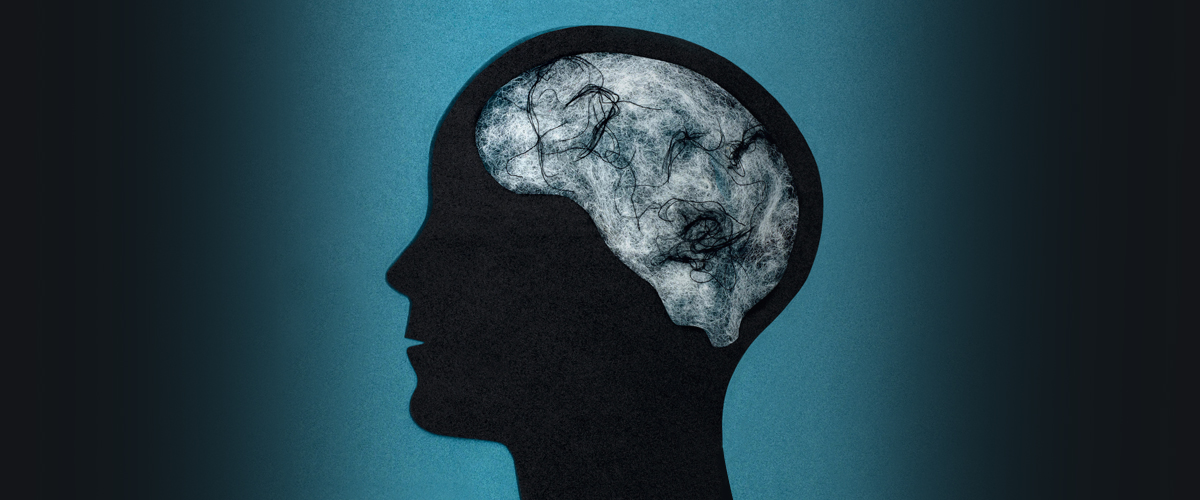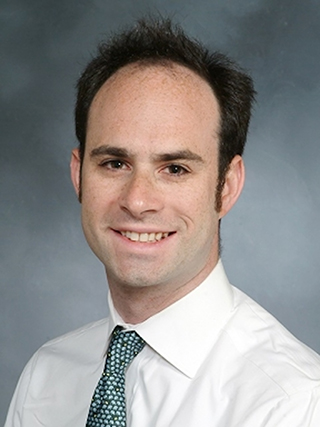Can COVID-19 Cause Brain Fog?
Some people who recover from COVID-19, including those with mild symptoms, complain of what has been dubbed COVID brain fog.

A year into the pandemic, many people are familiar with the most common symptoms of COVID-19, such as fever, cough, and difficulty breathing. But some who recover from the infection have reported lingering side effects, including what has become known as COVID brain fog. How does a respiratory illness lead to neurological problems such as memory loss and decreased attention span? The question has perplexed the medical community as it continues to study the long-term impact of COVID-19.
In a recent paper in the journal Neurology Clinical Practice, researchers from NewYork-Presbyterian and Columbia University Irving Medical Center described potential neurological symptoms of COVID-19 to include headache, fatigue, and dizziness, and clinicians across the country similarly report patients who complain of these symptoms along with memory loss, confusion, and difficulty focusing. Researchers who published a paper in the Journal of Infection followed 120 COVID-19 patients for three months after discharge, and approximately 30% said memory loss was a persistent issue, as was concentration. But it’s not just among patients who were hospitalized. Even people who had mild symptoms have reported these neurological issues.
Health Matters spoke with two neurologists — Dr. Mitchell Elkind, an attending neurologist on the stroke service at NewYork-Presbyterian/Columbia University Irving Medical Center, and Dr. Alexander Merkler, an assistant attending neurologist at NewYork-Presbyterian/Weill Cornell Medical Center — to better understand this emerging health concern and learn what people can do if they think they have COVID brain fog.
What is COVID brain fog?
Dr. Merkler: After patients recover from typical symptoms of COVID-19, such as fever, cough or shortness of breath, they have this lingering mental fog. Typical fog complaints that people describe are memory loss, trouble finding words, problems with attention, and being overwhelmed by simple tasks. A lot of these patients have not had any stroke or infection of the brain, no seizures or anything that was neurologically obvious during their COVID infection, but they’re coming away with a disturbance in their cognition.
Do we know why this is happening?
Dr. Elkind: I think there’s probably a few different reasons for it. In some patients COVID can cause brain injury, such as stroke, and you would have persistent deficits or problems related to that stroke. But some people seem to have this brain fog out of proportion to their illness. They had a mild illness and they recovered except that they continue to have long-lasting cognitive problems. We suspect this could be due to immune system activation, such that the immune system releases these molecules that help to make the immune system function and fight off infections, but as a side effect, these molecules can impact the nervous system.

Dr. Mitchell Elkind
Is this immune system reaction unique to COVID?
Dr. Merkler: No. Like any virus or bug that gets into our body, the way that we get rid of it is that our immune system takes over and fights it. When that happens, the body destroys the virus through inflammation. Just like if you have a cut in your arm, there can be swelling and redness that arise from the body’s inflammation of that area to make sure that it’s clean. Sometimes, however, the body over-reacts and starts attacking normal, healthy cells in an attempt to get rid of the virus. This has been seen with many other infectious diseases.
Dr. Elkind: We’ve known for a while that when patients have a medical illness that’s severe it can lead to cognitive problems. For instance, with an illness like streptococcal pneumonia, the immune reaction against the strep actually attacks the brain, and these patients can develop movement disorders and other psychiatric syndromes. We call it molecular mimicry because what happens is, the immune system recognizes the viral proteins, but some of the proteins in the brain just happen to be similar enough to those viral proteins that the immune system ends up attacking the brain.
So this is not necessarily specific to COVID. It’s just that there’s more COVID, so we’re seeing more of these aftereffects than we did with any of these other viruses or infections. And the contagiousness of COVID means we might see a lot more of these cases.
What signs should someone look out for? And when should they go to a doctor about brain fog?
Dr. Elkind: If the symptoms are severe or interfere with your life, if they fail to get better after a few weeks, or if they’re associated with any other unusual symptom that the person hasn’t had—like weakness, difficulty speaking, loss of vision, numbness and tingling—you should see your doctor. Those are symptoms that we as neurologists call focal symptoms, implying that there’s damage in one particular part of the nervous system.
Dr. Merkler: We know that COVID does increase the risk of stroke, so it behooves you to see your physician, get scanned, get brain imaging, and do blood work, because it’s important to rule out a brain injury or something completely unrelated to your COVID illness, like a thyroid condition.

Dr. Alexander Merkler
If someone has neurological problems after recovering from COVID, will it show up on a brain scan?
Dr. Elkind: Magnetic resonance imaging, or MRI, is very sensitive, but it doesn’t show us everything. When we image COVID patients to look at their brain and try to find injuries, we might not see signs of damage. It’s possible the virus is affecting the brain at a very microscopic but diffuse level so that we can’t really visualize it on our current imaging modalities like MRI.
There could be dysfunction of the nerve cells in the brain without us seeing anything on the imaging. And that could be due to inflammation, it could be that neurotransmitters — the molecules that allow nerve cells to talk to each other — may not be functioning normally, or antibodies may be interacting with them. There are a lot of ways that the nervous system may not function normally without it being due to a permanent injury.
Is there treatment?
Dr. Elkind: Right now we’re treating this similar to how we would treat a head injury. We know that getting enough sleep is important, as is avoiding anything that might be potentially dangerous, like smoking.
Dr. Merkler: The good news is there’s no evidence that this mental fog is permanent, so we can be cautiously optimistic in the hopes that it will resolve and you would go back to normal. People do recover, so it is important to be hopeful and positive. In order to give you the best chance of recovery, a person should slowly try to get back to their normal routine. Leading a healthy lifestyle, doing physical exercise, and keeping your mind busy, whether through work or puzzles, are all recommended.
Mitchell Elkind, M.D., M.S., FAAN, FAHA, is an attending neurologist with NewYork-Presbyterian/Columbia University Irving Medical Center, a professor of neurology at Columbia University Vagelos College of Physicians and Surgeons, a professor of epidemiology at Columbia University Mailman School of Public Health, and the president of the American Heart Association. He is also a principal investigator of the ARCADIA trial, a joint Columbia University Irving Medical Center and Weill Cornell Medicine trial, funded by the National Institutes of Health, which is testing the hypothesis that the blood thinner apixaban will be more effective than aspirin in preventing a second stroke among patients with unexplained stroke and atrial cardiopathy.
Alexander Merkler, M.D., is an assistant attending neurologist with NewYork-Presbyterian/Weill Cornell Medical Center and an assistant professor of neurology at Weill Cornell Medicine. Dr. Merkler is board certified in neurology and psychiatry and an expert in neurocritical care and acute brain injury. He has published numerous studies on stroke, infectious disease of the nervous system, subdural hematoma, intracerebral hemorrhage, and subarachnoid hemorrhage. His work has been published in peer-reviewed journals including Neurology, JAMA Neurology, Stroke, and Neurocritical Care.
